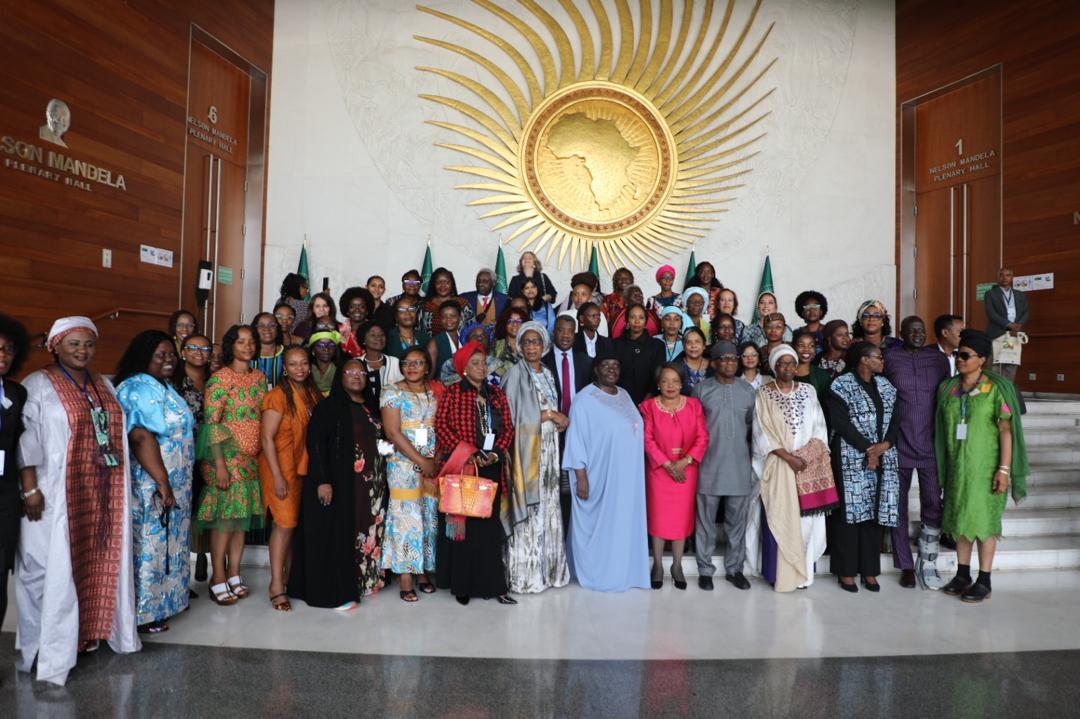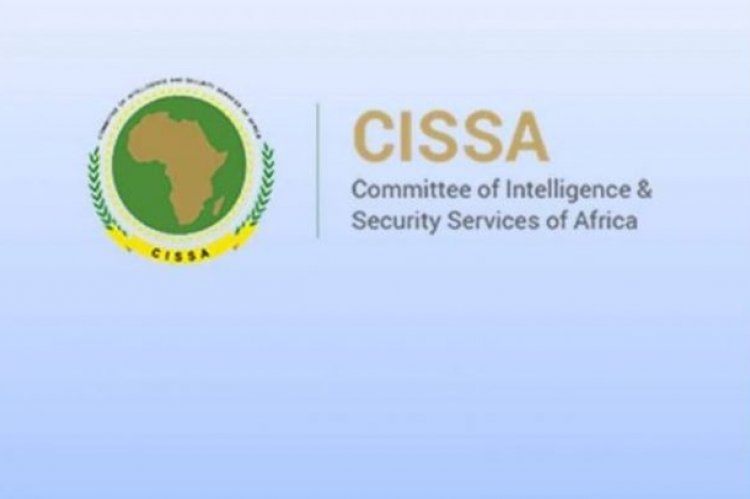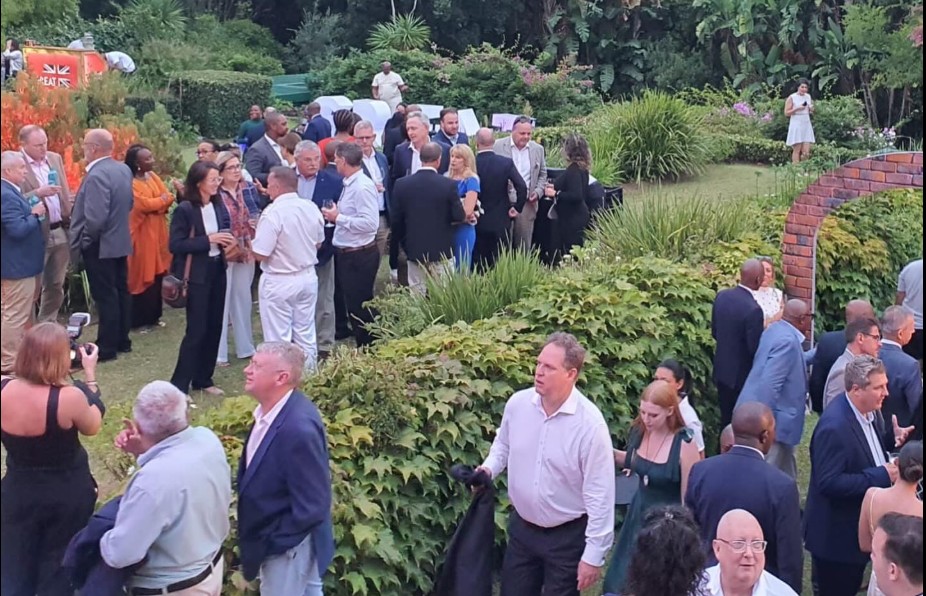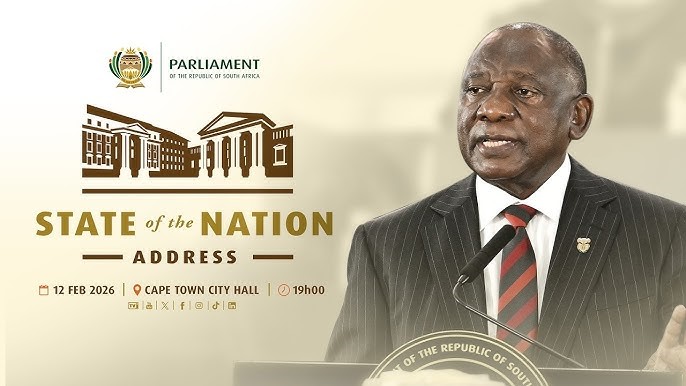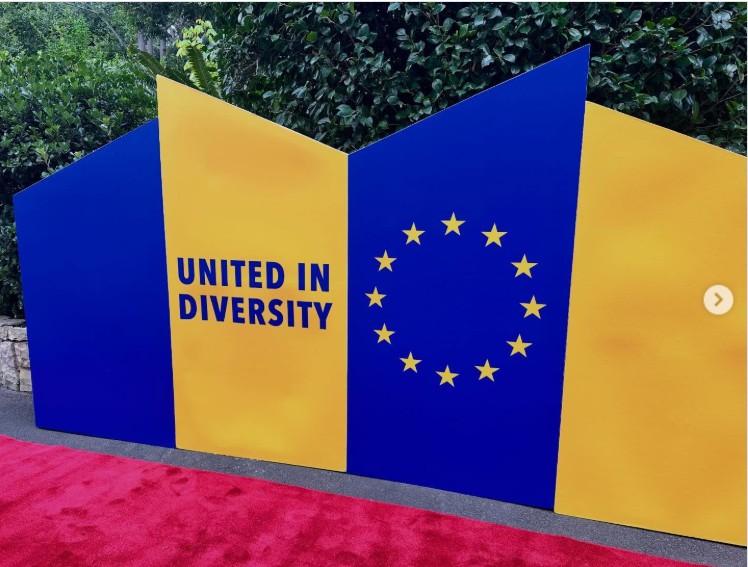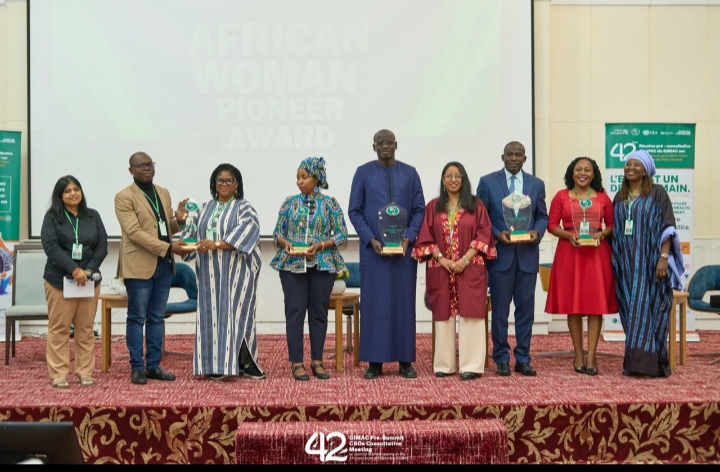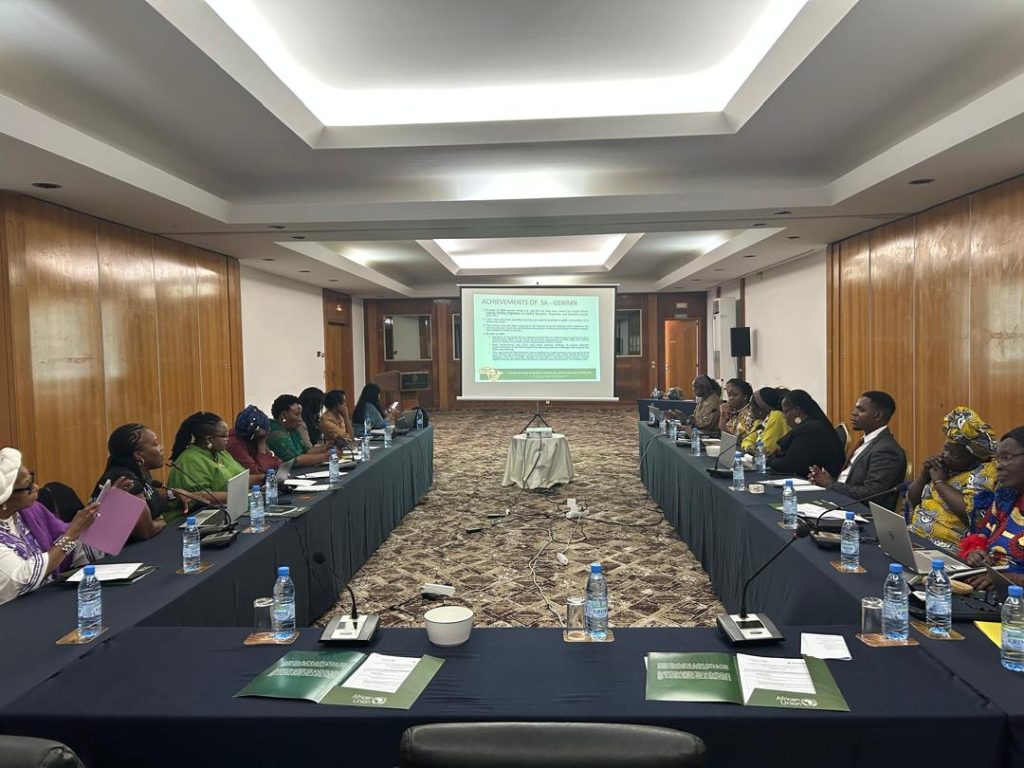The African Union Commission (AUC), in partnership with ACCORD and Nett4Peace, conducted an Orientation and Advanced Mediation Training for the second cohort of the Network of African Women in Conflict Prevention and Mediation (FemWise-Africa) from 19–23 May 2025 in Addis Ababa, Ethiopia. This initiative aimed to engage the new cohort with the AUC and enhance the Network’s capacity to effectively contribute to mediation efforts, particularly focusing on ceasefire and power-sharing negotiations.
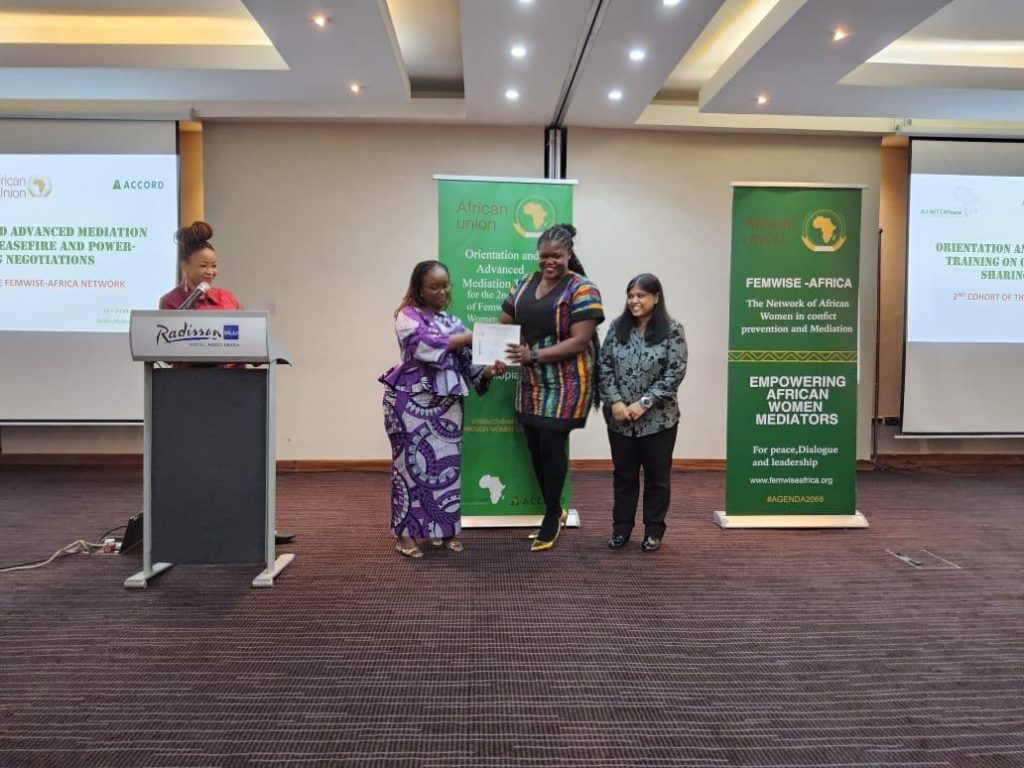
In the opening session, H.E. Bankole Adeoye, Commissioner for Political Affairs, Peace and Security (PAPS), congratulated the new cohort and emphasised the vital role of women in all areas of peace processes. He was joined by members of the AU and FemWise-Africa leadership, who provided participants with an overview of the AU’s mechanisms and priorities. Participants also had the opportunity to learn from the lived experiences of senior mediators involved in African peace processes, focused on the role of women in mediation.
The advanced mediation component of the training was led by independent experts Colonel Mbaye Faye and Madam Stella Sabiiti. Through interactive sessions, they guided participants through key concepts in negotiation and mediation, particularly within the context of ceasefire agreements and power-sharing arrangements.
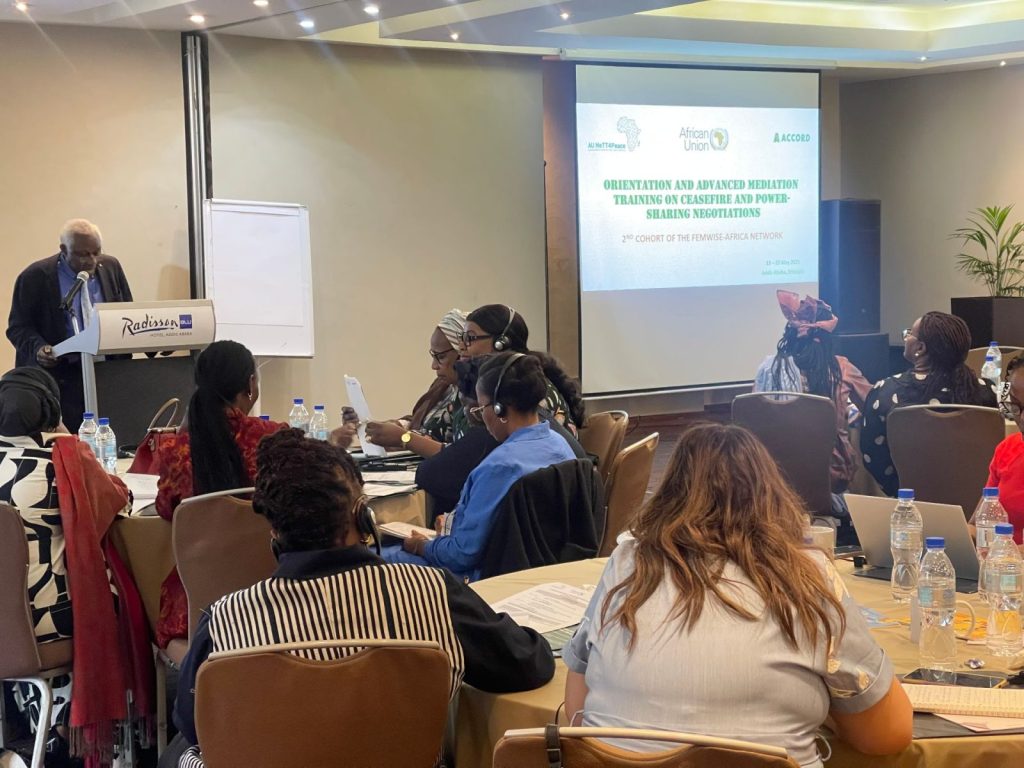
Discussions highlighted the necessity for the genuine inclusion of women at the mediation table. While there is increasing recognition of women’s roles in peace processes, participants noted that the structural barriers and exclusionary criteria often prevent their full participation. Furthermore, they underscored the importance of building credibility through empathy and relationship-building in mediation processes, not only to resolve conflict but to prevent it.
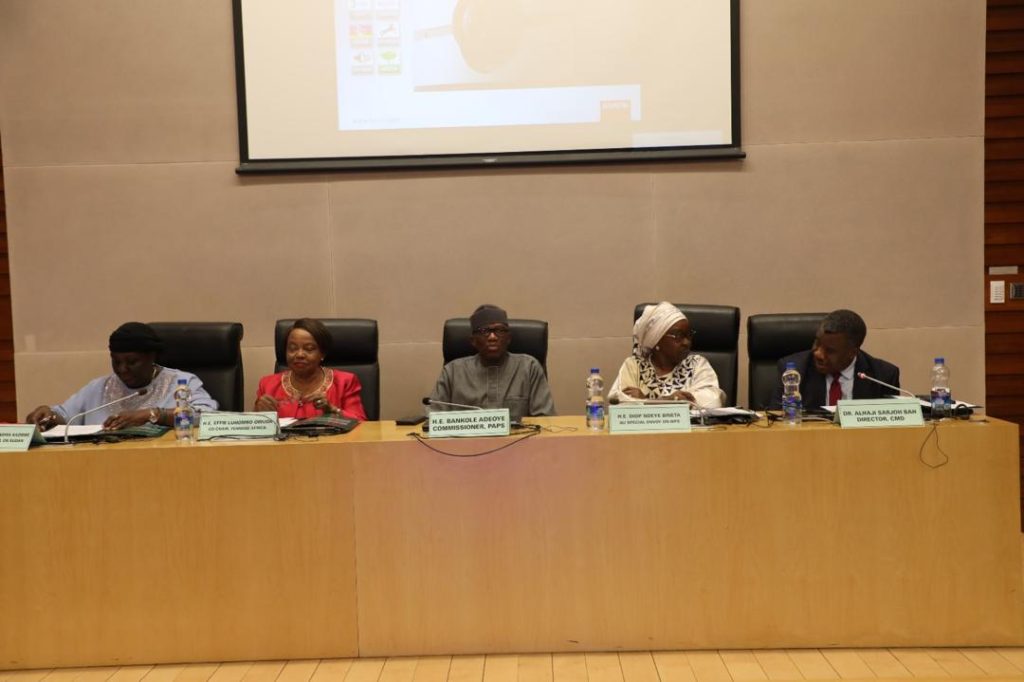
The training also addressed specific challenges faced by women deployed in mediation missions, including security concerns and the exclusion of grassroots women’s voices. These discussions were complemented by research presentations from the Friedrich Ebert Stiftung (FES), which examined women’s roles in mediation processes in Mali and South Sudan. The research findings identified political, socio-cultural, and economic barriers that hinder women’s full participation.
Overall, the training combined theoretical knowledge with practical experience-sharing, highlighting the different stages of conflict and post-conflict processes, as well as how mediators can respond effectively. It equipped the new cohort with the tools, knowledge, and support network necessary for them to serve as effective mediators across the continent.

